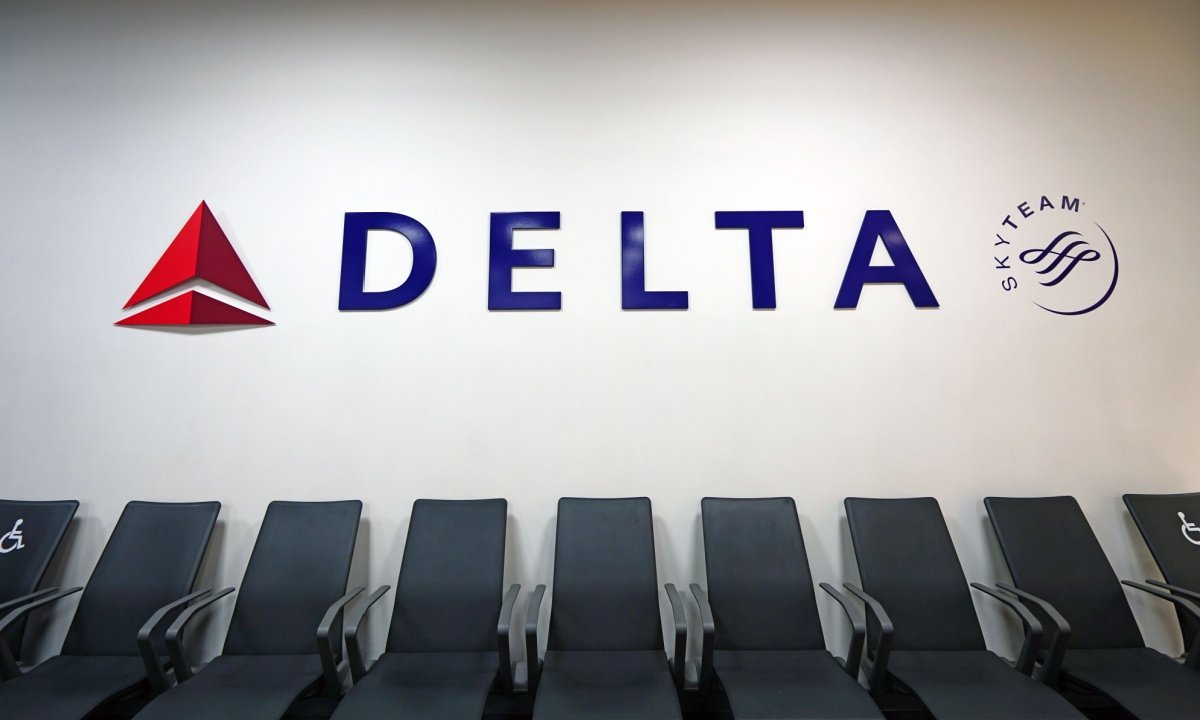AI in Travel
Delta Air Lines Tests AI-Powered Personalized Pricing

Delta Air Lines is testing a new artificial intelligence (AI) pricing system that tailors fares to individual customers, a move that could reshape how airline tickets are sold and priced.
AI in Travel
AI in Tourism Market Size Worth USD 27.89 Billion by 2035

According to a research report published by Spherical Insights & Consulting, The Global AI in Tourism Market Size is expected to Grow from USD 2.98 Billion in 2024 to USD 27.89 Billion by 2035, at a CAGR of 22.54% during the forecast period 2025-2035.
The AI in Tourism global market research studies offer an in-depth analysis of current industry trends, development models, and methodology. Production processes, development platforms, and the actual product models are some of the variables that have a direct impact on the market. The aforementioned characteristics can drastically vary in response to even minor changes in the product profile. The study provides a thorough explanation of each of these elements of Information & Technology.
Request To Download Free Sample copy of the report @ https://www.sphericalinsights.com/request-sample/12740
Market Overview
The AI in tourism market focuses on enhancing customer satisfaction and creating more personalized, seamless travel experiences through the use of advanced technologies. By integrating artificial intelligence into the travel industry-such as virtual tour guides, AI-powered chatbots, and tailored recommendations-businesses can better meet individual traveler needs, leading to increased customer engagement, loyalty, and overall satisfaction. Market growth is largely driven by the push for improved operational efficiency and traveler safety. A notable example is Thailand’s real-time AI travel assistant, Sukjai, which demonstrates how AI can enhance visitor experiences while supporting local digital transformation. Additionally, businesses are leveraging big data, predictive analytics, and logistics optimization to streamline travel, minimize disruptions, and improve service delivery. AI-powered safety tools further contribute to a secure and informed travel experience. Despite these benefits, the high costs associated with AI implementation remain a significant barrier to widespread adoption.
Buy Now this report: https://www.sphericalinsights.com/checkout/12740
The solution segment held the largest share in 2024 and is anticipated to grow at a significant CAGR during the forecast period.
Based on the offering, the AI in tourism market is classified into solution and services. Among these, the solution segment held the largest share in 2024 and is anticipated to grow at a significant CAGR during the forecast period. The segmental growth can be attributed to the rising need for intelligent automation and real-time information. Efficiency and user experience are improved by integration with mobile apps and reservation systems. This market is expanding steadily as the sector adopts smart technology.
The transportation & mobility services segment accounted for the largest share in 2024 and is estimated to grow at a remarkable CAGR during the forecast period.
Based on the end use, the AI in tourism market is categorized into transportation & mobility services, travel technology platforms & solution providers, accommodation & hospitality providers, and tourism experience & attraction operators. Among these, the transportation & mobility services segment accounted for the largest share in 2024 and is estimated to grow at a remarkable CAGR during the forecast period. The segmental growth can be attributed to the real-time trip information, predictive maintenance, and dynamic pricing that are just a few of the ways AI is transforming transportation. AI is being used by airlines, railways, and ride-sharing businesses to improve passenger experience and efficiency. Investments in AI-powered transportation systems are being driven by the growing desire for smooth, connected mobility.
North America is expected to hold the majority share of the global AI in tourism market during the projected timeframe.
North America is expected to hold the majority share of the global AI in tourism market during the projected timeframe. This is attributed to an increasing need for customized travel services and efficient operational tools. Large travel and hospitality companies are investing in AI-driven solutions to improve booking experiences, customer engagement, and predictive analytics. Real-time language translation, facial recognition at airports, and AI-based chatbots are all becoming more prevalent in the area’s tourism-related enterprises. Additionally, supporting this trend is the growing use of AI in transportation management, particularly in tourist-heavy cities.
Asia Pacific is anticipated to grow at the fastest pace in the global AI in tourism market during the forecast period. The growth is expanded by the robust government initiatives and digital uptake. Travel experiences and personalization are being transformed by AI-powered super-apps and smart tourism tools. Building cutting-edge AI ecosystems for the travel and tourism sector is a major responsibility of regional tech companies.
List of Key Companies
• Amazon Web Services, Inc.
• Snowflake Inc.
• Appier Inc.
• SAS Institute Inc.
• Huawei Technologies Co., Ltd.
• Salesforce, Inc.
• IBM Corporation
• Sabre Corporation
• Microsoft
• NVIDIA Corporation
• Others.
Market Challenges
1. High Implementation Costs: Developing and integrating AI technologies-such as machine learning platforms, virtual assistants, and predictive analytics-require substantial investment, which can be a major barrier for small and medium-sized travel businesses.
2. Data Privacy and Security Concerns: The use of AI relies heavily on collecting and processing personal data. Ensuring compliance with data protection regulations like GDPR and maintaining user trust remains a significant challenge.
3. Lack of Technical Expertise: Many tourism companies face a shortage of skilled professionals who can develop, maintain, and operate AI systems effectively.
4. Limited Infrastructure in Emerging Markets: In many developing regions, the digital infrastructure required to support AI applications is still underdeveloped, limiting the market’s growth potential.
5. Resistance to Technological Adoption: Some traditional travel businesses and consumers may be hesitant to adopt AI-driven solutions due to unfamiliarity or fear of automation replacing human interaction.
6. Integration with Legacy Systems: Existing travel platforms and systems may not be compatible with modern AI technologies, making integration complex and costly.
7. Ethical and Bias Issues: AI systems may unintentionally incorporate biases or make decisions that lack transparency, leading to fairness concerns in customer service and recommendation systems.
Research Objectives
1. To analyze the impact of AI technologies on enhancing customer experience, personalization, and operational efficiency in the tourism industry.
2. To identify key drivers, restraints, and opportunities influencing the adoption of AI-based solutions across various segments of the travel and tourism sector.
3. To evaluate the role of AI in improving safety, real-time assistance, and digital transformation in both developed and emerging tourism markets.
Key Recent Development
• In March 2025, LG Uplus, a South Korean telecommunications and technology company, teamed with Amazon Web Services to accelerate AI transformation in Korea through the development of a sovereign cloud, AI platforms, and consultancy services. The alliance aims to accelerate AI adoption for organizations, improve customer service skills, and increase data security and sovereignty.
Access Full Report: https://www.sphericalinsights.com/reports/ai-in-tourism-market
Market Segment
This study forecasts revenue at global, regional, and country levels from 2020 to 2035. Spherical Insights has segmented the AI in tourism market based on the below-mentioned segments:
Global AI in Tourism Market, By Offering
• Solution
• Services
Global AI in Tourism Market, By End Use
• Transportation & Mobility Services
• Travel Technology Platforms & Solution Providers
• Accommodation & Hospitality Providers
• Tourism Experience & Attraction Operators
Regional Segment Analysis of the AI in Tourism Market
• North America (U.S., Canada, Mexico)
• Europe (Germany, France, U.K., Italy, Spain, Rest of Europe)
• Asia-Pacific (China, Japan, India, Rest of APAC)
• South America (Brazil and the Rest of South America)
• The Middle East and Africa (UAE, South Africa, Rest of MEA)
What’s covered in the report?
1. Overview of the AI in Tourism Market.
2. The current and forecasted regional (North America, Europe, Asia-Pacific, Latin America, the Middle East and Africa) market size data for the AI in Tourism Market, based on segment.
3. AI in Tourism Market trends.
4. AI in Tourism Market drivers.
5. Analysis of major company profiles.
FIVE FORCES ANALYSIS
1. Competitive Rivalry – High
The market is becoming increasingly competitive as major travel companies, tech startups, and AI solution providers invest in innovation. Continuous upgrades and rapid adoption of AI tools increase pressure to stay ahead.
2. Threat of New Entrants – Moderate
While the AI in tourism market is attractive, high capital investment, technological complexity, and the need for industry-specific expertise act as barriers. However, growing demand and cloud-based solutions are lowering entry barriers over time.
3. Bargaining Power of Suppliers – Moderate
AI technology suppliers (software developers, data providers, cloud services) hold moderate power. As demand for cutting-edge AI tools rises, so does the influence of specialized AI providers, though competition among them keeps prices somewhat controlled.
4. Bargaining Power of Buyers – High
Customers-both businesses and travelers-have many options to choose from. They expect high personalization, security, and real-time responsiveness. Their power increases as switching between platforms becomes easier.
5. Threat of Substitutes – Moderate to High
Traditional tourism services, human-guided tours, and non-AI-based platforms still serve as alternatives. If AI solutions fail to deliver superior value, users may revert to more familiar or trusted methods.
PESTLE ANALYSIS
• Political: Government support for digital transformation and smart tourism initiatives boosts AI adoption.
• Economic: High initial costs may limit adoption, but long-term savings and efficiency drive ROI.
• Social: Growing demand for personalized, tech-enabled travel experiences fuels market growth.
• Technological: Rapid advancements in AI, big data, and machine learning are key enablers.
• Legal: Data privacy laws and AI usage regulations challenge implementation across regions.
• Environmental: AI can optimize travel logistics and reduce carbon footprints, supporting sustainable tourism.
Table of Content (TOC)
• Introduction
1. Objectives of the Study
2. Market Definition
3. Research Scope
• Research Methodology and Assumptions
• Executive Summary
• Premium Insights
1. Porter’s Five Forces Analysis
2. Value Chain Analysis
3. Top Investment Pockets
1. Market Attractiveness Analysis By Product Type
2. Market Attractiveness Analysis By Type
3. Market Attractiveness Analysis By Segment Type
4. Market Attractiveness Analysis By Region
4. Industry Trends
• Market Dynamics
1. Market Evaluation
2. Drivers
1. Increasing development in sector
3. Restraints
4. Opportunities
5. Challenges
• Global AI in Tourism Market Analysis and Projection, By Product Type
• Global AI in Tourism Market Analysis and Projection, By Type
• Global AI in Tourism Market Analysis and Projection, By Segment Type
• Global AI in Tourism Market Analysis and Projection, By Regional Analysis
1. Segment Overview
2. North America
1. U.S.
2. Canada
3. Mexico
3. Europe
1. Germany
2. France
3. U.K.
4. Italy
5. Spain
4. Asia-Pacific
1. Japan
2. China
3. India
5. South America
1. Brazil
6. Middle East and Africa
1. UAE
2. South Africa
• Global AI in Tourism Market -Competitive Landscape
1. Overview
1. Market Share of Key Players in the Global AI in Tourism Market
2. Global Company Market Share
3. North America Company Market Share
4. Europe Company Market Share
5. APAC Company Market Share
2. Competitive Situations and Trends
1. Coverage Launches and Developments
2. Partnerships, Collaborations, and Agreements
3. Mergers & Acquisitions
4. Expansions
• Company Profiles
1. Company1
1. Business Overview
2. Company Snapshot
3. Company Market Share Analysis
4. Company Coverage Portfolio
5. Recent Developments
6. SWOT Analysis
2. Company2
1. Business Overview
2. Company Snapshot
3. Company Market Share Analysis
4. Company Coverage Portfolio
5. Recent Developments
6. SWOT Analysis
3. Company3
1. Business Overview
2. Company Snapshot
3. Company Market Share Analysis
4. Company Coverage Portfolio
5. Recent Developments
6. SWOT Analysis
Browse Related Reports:
Global Testing, Inspection, and Certification Market Size Share
https://www.sphericalinsights.com/reports/testing-inspection-and-certification-market
Global Telecom Cloud Market Size, Share
https://www.sphericalinsights.com/reports/telecom-cloud-market
About the Spherical Insights & Consulting
Spherical Insights & Consulting is a market research and consulting firm which provides actionable market research study, quantitative forecasting and trends analysis provides forward-looking insight especially designed for decision makers and aids ROI.
Which is catering to different industry such as financial sectors, industrial sectors, government organizations, universities, non-profits and corporations. The company’s mission is to work with businesses to achieve business objectives and maintain strategic improvements.
CONTACT US:
For More Information on Your Target Market, Please Contact Us Below:
Phone: +1 303 800 4326 (the U.S.)
Phone: +91 90289 24100 (APAC)
Email: inquiry@sphericalinsights.com, sales@sphericalinsights.com
Contact Us: https://www.sphericalinsights.com/contact-us
Follow Us: LinkedIn | Facebook | Twitter
This release was published on openPR.
AI in Travel
STB, OpenAI ink MOU to drive advanced AI adoption across tourism sector

[SINGAPORE] The Singapore Tourism Board (STB) has inked a memorandum of understanding with ChatGPT-maker OpenAI to drive the adoption of advanced artificial intelligence (AI) across the city-state’s tourism sector.
Going beyond traditional AI systems, advanced AI can perform complex cognitive tasks and generate human-like responses – by using machine learning generative capabilities to do things like understand natural language, analyse data at scale and create personalised, context-dependent solutions.
The collaboration will prepare STB and Singapore’s tourism sector for an AI-driven future and lay the groundwork for the sector to benefit from the latest AI advancements, the board said on Wednesday (Jul 23).
This aligns with STB’s Tourism 2040 roadmap – which prioritises developing a future-ready tourism sector – as it will prepare the sector for evolving technological advancements and transformative changes in the travel industry.
Jordan Tan, STB chief technology officer, said: “We see tremendous potential in this collaboration with OpenAI to drive innovation and agility in the tourism sector. By leveraging OpenAI’s capabilities, we envision AI as a key enabler in addressing productivity challenges and accelerating digital transformation across the sector.”
Speaking on the partnership, Oliver Jay, managing director of international at OpenAI, said the company would support STB in integrating its technology across multiple applications.
BT in your inbox
Start and end each day with the latest news stories and analyses delivered straight to your inbox.
Improving visitor experience
Under the tie-up, STB will adopt OpenAI’s technology and explore potential use cases where advanced tools and robotics can be incorporated into tourism.
STB will evaluate the impact of such use cases, explore their scalability and potentially launch trials with relevant sector partners.
The board will use OpenAI’s capabilities to enhance visitor experiences through greater personalisation and engagement, as well as to improve organisational and industry productivity.
This could involve working with tourism businesses, such as hotels and attractions, to provide tailored recommendations and multilingual assistance, STB said. It may also include delivering immersive storytelling initiatives that create memorable experiences.
“These initiatives will ultimately encourage repeat visits and (serve as) advocacy for Singapore,” the STB said.
Moreover, the use of advanced AI will help deepen insights, refine destination marketing and product strategies, and support industry stakeholders in creating responsive services, the board added.
OpenAI was founded in 2015 by a group including its CEO Sam Altman and Elon Musk, the world’s richest person. However, Musk has since left the firm.
AI in Travel
Artificial Intelligence–Driven Travel Safety Evolved How Cutting-Edge Technology, Ethical Data Use, and Personalized Risk Management Are Reshaping Global Journeys But Are Today’s Travelers Truly Ready to Trust AI With Their Safety?

Wednesday, July 23, 2025
Navigating Change: Redefining Travel Safety in the Age of AI
By 2024, the landscape of corporate travel in the United States had evolved dramatically. Nearly 82% of companies had integrated artificial intelligence (AI) into their travel risk management strategies, a notable rise from 69% the year before. But this trend wasn’t just about adopting smart tech. It reflected a deeper, more meaningful shift—a growing dedication to the safety, personalization, and ethical treatment of travelers.
The message was clear: while technology plays a crucial role, leadership rooted in responsibility and empathy is what truly transforms outcomes. To genuinely protect people on the move, organizations had to match their investment in cutting-edge tools with investments in human oversight, data ethics, and traveler empowerment.
Bridging the Gaps: The Problem of Fragmented Systems
Even as AI capabilities expanded, many companies still operated with disconnected platforms. In practice, travel managers, booking tools, safety alerts, and insurance systems often existed in separate silos, unable to share information in real time.
Consider this: a traveler headed to Mexico City is staying near an area flagged by AI for potential unrest. But if the itinerary app doesn’t register this alert—or the company’s policy doesn’t allow rapid changes—the person may still walk into a dangerous situation. Not because of a lack of information, but because of poor communication between systems.
This scenario underscores a fundamental truth: real-time coordination saves lives. Technology alone isn’t enough unless the entire travel ecosystem is integrated, responsive, and collaborative.
The Irreplaceable Role of Human Judgment
AI is exceptional at sorting through massive data and spotting patterns across the globe. What it lacks, however, is the human ability to feel. It cannot sense the subtle unease of a traveler walking alone in a foreign city after dark.
Take Tel Aviv, for instance. A system may mark a district as statistically riskier at night, but it doesn’t recognize the fear a solo traveler may experience on the ground. AI sees the data—humans understand the emotion behind it.
This gap is where travel managers and human decision-makers step in. They’re not just planning flights and hotels anymore—they’ve become ethical guides, advocates, and interpreters of real-world context. Their job is to act where machines cannot: with compassion, experience, and judgment.
Personal Identity and Risk: A Delicate Balance
The rise of personalized risk management has placed identity at the center of travel safety. To tailor protections effectively, AI systems need to understand the individual: their gender, sexual orientation, citizenship, and even health background. While this enables more precise safety protocols, it also introduces serious concerns about privacy and misuse.
This is where innovations like encrypted digital travel wallets come into play. These tools allow users to store sensitive details locally and release them only to verified systems—keeping the traveler in control while still ensuring personalized safety support.
At the heart of this model are three core principles:
- Transparency: Travelers must know how their information is used.
- Control: They should decide when and where data is shared.
- Privacy-first design: Every system must be built with protection in mind from the start.
Striking this balance is challenging—but essential. A person’s identity should empower their protection, not put them at further risk.
Travel Alerts, Reimagined
Gone are the days when travel safety meant reacting to events after they happened. Instead of waiting for headlines like “An incident has occurred in Paris,” modern systems now use AI to forecast trouble before it unfolds. A traveler might now get an alert saying, “Protests are expected in this district later this week—consider alternative arrangements.”
What’s more, these alerts are becoming hyper-personalized. What’s considered safe for one person may be entirely different for another. Someone who identifies as LGBTQ, practices a minority religion, or carries a visible cultural identity may face unique challenges in regions that seem risk-free to others.
Through encrypted, discreet communication, AI-driven systems can now send alerts tailored to a traveler’s individual risk profile, combining precision with privacy. This shift turns travel safety from a one-size-fits-all approach into something truly personal—and potentially life-saving.
Shaping a Safer Global Travel Experience
This personalized approach is already reshaping travel experiences across the globe. It’s particularly impactful for travelers whose identities were historically overlooked in traditional safety models.
Picture this: a person with British nationality but an Iranian passport, flying to Israel. Old models would assess the journey based solely on geography. Today, advanced systems consider a more complete picture—national origin, current political climates, and individual identity—to provide more relevant safety guidance.
This inclusive approach also extends to people with non-visible conditions—those living with chronic illness, mental health concerns, or who are neurodivergent. These individuals often need support but may not want to disclose sensitive details publicly. With modern systems, they can receive custom safety resources discreetly, without exposing personal information.
Rethinking Risk: It’s Not Just About Geography
For years, the travel industry relied on simplified color-coded maps—red zones for danger, green for safety. While visually helpful, they miss a critical point: risk is deeply personal.
A city marked as “safe” could pose hidden dangers depending on a traveler’s gender, race, religion, or identity. What one person considers a low-risk area may feel threatening or even hostile to someone else.
As a result, the industry is transitioning to context-aware systems that view travelers as individuals, not statistics. These systems analyze more than just destination—they consider who the traveler is and how their presence might be perceived or challenged in specific environments.
This is the future: dynamic, inclusive, and realistic assessments that replace static maps with meaningful, human-centered insights.
The Road Ahead: What Travel Safety Must Become
As AI becomes embedded in the fabric of travel safety, the industry must reimagine its priorities. This isn’t just a shift in tools—it’s a shift in values.
To move forward effectively:
- General warnings must evolve into individualized risk analyses
- Trust must be built through data security, consent, and communication
- Ethical data handling will shape public opinion and brand integrity
- Cross-platform integration must replace outdated silos
Those who recognize that technology must serve humanity—not the other way around—will lead the way. Travel companies and institutions must build systems that don’t just process data, but respect people, acknowledge differences, and respond with care.
Final Thoughts: It’s Not Just About the Journey
In this new era, travel safety isn’t solely defined by maps, alerts, or gadgets. It’s defined by how well we understand and protect each person’s unique reality.
The destination still matters—but it’s the identity, experiences, and needs of the traveler that increasingly shape what safety looks like. The promise of AI lies not just in data, but in its ability to see and safeguard the whole human being.
Highlights That Matter
- 82% of organizations in the United States now use AI in travel safety planning
- Mexico City, Tel Aviv, Paris, Israel, Britain, and Iran highlight complex, real-world travel dynamics
- Integration, empathy, and privacy are central to future safety systems
- Personalized, predictive alerts replace outdated one-size-fits-all warnings
- Encrypted identity tools ensure protection without exposure
- The industry must shift from “where” you’re going to “who” you are
This transformation invites the global travel community to move forward with integrity, intelligence, and above all, humanity.
-

 Brand Stories2 days ago
Brand Stories2 days agoBloom Hotels: A Modern Vision of Hospitality Redefining Travel
-

 Brand Stories1 day ago
Brand Stories1 day agoOlive Living: India’s Intelligent, Community-Centric Hospitality Powerhouse
-

 Destinations & Things To Do3 days ago
Destinations & Things To Do3 days agoUntouched Destinations: Stunning Hidden Gems You Must Visit
-

 AI in Travel3 days ago
AI in Travel3 days agoAI Travel Revolution: Must-Have Guide to the Best Experience
-

 Brand Stories3 weeks ago
Brand Stories3 weeks agoVoice AI Startup ElevenLabs Plans to Add Hubs Around the World
-

 Brand Stories2 weeks ago
Brand Stories2 weeks agoHow Elon Musk’s rogue Grok chatbot became a cautionary AI tale
-

 Asia Travel Pulse3 weeks ago
Asia Travel Pulse3 weeks agoLooking For Adventure In Asia? Here Are 7 Epic Destinations You Need To Experience At Least Once – Zee News
-

 AI in Travel3 weeks ago
AI in Travel3 weeks ago‘Will AI take my job?’ A trip to a Beijing fortune-telling bar to see what lies ahead | China
-

 Brand Stories3 weeks ago
Brand Stories3 weeks agoChatGPT — the last of the great romantics
-

 The Travel Revolution of Our Era1 month ago
The Travel Revolution of Our Era1 month agoCheQin.ai Redefines Hotel Booking with Zero-Commission Model













You must be logged in to post a comment Login